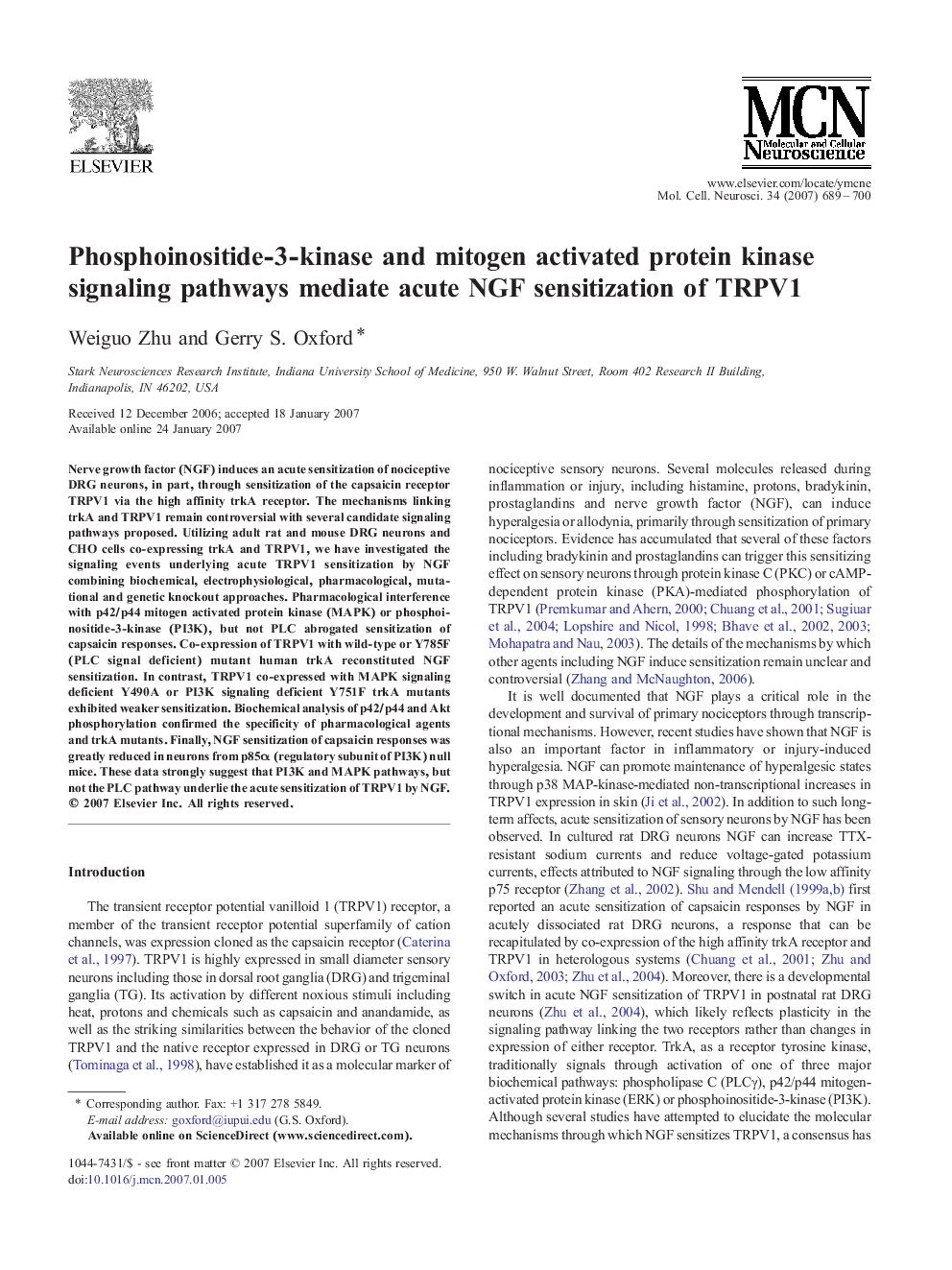| Article ID | Journal | Published Year | Pages | File Type |
|---|---|---|---|---|
| 2199520 | Molecular and Cellular Neuroscience | 2007 | 12 Pages |
Nerve growth factor (NGF) induces an acute sensitization of nociceptive DRG neurons, in part, through sensitization of the capsaicin receptor TRPV1 via the high affinity trkA receptor. The mechanisms linking trkA and TRPV1 remain controversial with several candidate signaling pathways proposed. Utilizing adult rat and mouse DRG neurons and CHO cells co-expressing trkA and TRPV1, we have investigated the signaling events underlying acute TRPV1 sensitization by NGF combining biochemical, electrophysiological, pharmacological, mutational and genetic knockout approaches. Pharmacological interference with p42/p44 mitogen activated protein kinase (MAPK) or phosphoinositide-3-kinase (PI3K), but not PLC abrogated sensitization of capsaicin responses. Co-expression of TRPV1 with wild-type or Y785F (PLC signal deficient) mutant human trkA reconstituted NGF sensitization. In contrast, TRPV1 co-expressed with MAPK signaling deficient Y490A or PI3K signaling deficient Y751F trkA mutants exhibited weaker sensitization. Biochemical analysis of p42/p44 and Akt phosphorylation confirmed the specificity of pharmacological agents and trkA mutants. Finally, NGF sensitization of capsaicin responses was greatly reduced in neurons from p85α (regulatory subunit of PI3K) null mice. These data strongly suggest that PI3K and MAPK pathways, but not the PLC pathway underlie the acute sensitization of TRPV1 by NGF.
